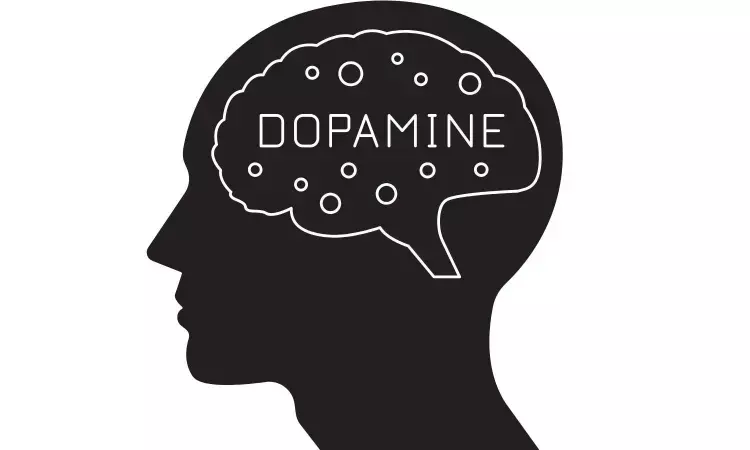- Home
- Medical news & Guidelines
- Anesthesiology
- Cardiology and CTVS
- Critical Care
- Dentistry
- Dermatology
- Diabetes and Endocrinology
- ENT
- Gastroenterology
- Medicine
- Nephrology
- Neurology
- Obstretics-Gynaecology
- Oncology
- Ophthalmology
- Orthopaedics
- Pediatrics-Neonatology
- Psychiatry
- Pulmonology
- Radiology
- Surgery
- Urology
- Laboratory Medicine
- Diet
- Nursing
- Paramedical
- Physiotherapy
- Health news
- Fact Check
- Bone Health Fact Check
- Brain Health Fact Check
- Cancer Related Fact Check
- Child Care Fact Check
- Dental and oral health fact check
- Diabetes and metabolic health fact check
- Diet and Nutrition Fact Check
- Eye and ENT Care Fact Check
- Fitness fact check
- Gut health fact check
- Heart health fact check
- Kidney health fact check
- Medical education fact check
- Men's health fact check
- Respiratory fact check
- Skin and hair care fact check
- Vaccine and Immunization fact check
- Women's health fact check
- AYUSH
- State News
- Andaman and Nicobar Islands
- Andhra Pradesh
- Arunachal Pradesh
- Assam
- Bihar
- Chandigarh
- Chattisgarh
- Dadra and Nagar Haveli
- Daman and Diu
- Delhi
- Goa
- Gujarat
- Haryana
- Himachal Pradesh
- Jammu & Kashmir
- Jharkhand
- Karnataka
- Kerala
- Ladakh
- Lakshadweep
- Madhya Pradesh
- Maharashtra
- Manipur
- Meghalaya
- Mizoram
- Nagaland
- Odisha
- Puducherry
- Punjab
- Rajasthan
- Sikkim
- Tamil Nadu
- Telangana
- Tripura
- Uttar Pradesh
- Uttrakhand
- West Bengal
- Medical Education
- Industry
Levodopa Shows No Added Benefit for Motor Recovery in Acute Stroke Rehabilitation: JAMA

A new clinical trial published in the Journal of the American Medical Association revealed that adding levodopa did not significantly improve motor function at 3 months when compared with placebo plus standard rehabilitation in patients undergoing inpatient rehabilitation for acute stroke.
Levodopa has long been thought to improve dopaminergic signaling and stimulate neuroplasticity, potentially boosting recovery in patients with neurological damage. Despite its use in some rehabilitation programs, the evidence for its benefit after stroke has remained mixed.
Thus, this trial which involved 610 patients with acute ischemic or hemorrhagic stroke and meaningful hemiparesis was conducted. Across 13 stroke units and 11 rehabilitation centers in Switzerland, the patients were randomized equally to receive either levodopa/carbidopa (100 mg/25 mg) or a placebo 3 times daily for 39 days. Both groups also received standardized, active, task-oriented rehabilitation. Enrollment began in June 2019, with the last patient completing follow-up in August 2024.
The primary outcome measured motor recovery using the Fugl-Meyer Assessment (FMA) score, a standardized scale ranging from 0 to 100, where higher scores indicate better motor function. A difference of six points was considered clinically relevant.
At 3 months, 582 patients were available for the primary analysis, as 28 participants had died. These results showed that patients in the levodopa group achieved a median FMA score of 68, while the placebo group scored 64. However, the adjusted mean difference between the groups was just −0.90 points, with no statistical significance (95% CI, −3.78 to 1.98; P = .54). This falls well below the threshold of clinical relevance, signaling that levodopa did not provide additional benefit compared with placebo.
Both groups experienced a similar rate of serious adverse events, suggesting that levodopa was safe but not effective for this indication. Infections were the most frequent complication, by affecting 55 patients in the levodopa group and 44 in the placebo group. Other serious events were distributed almost evenly (126 in the levodopa arm vs. 129 in the placebo arm).
Overall, the findings suggest that levodopa does not improve recovery when combined with standard rehabilitation after stroke. While the drug remains vital in treating Parkinson’s disease, its role in stroke recovery appears limited.
Source:
Engelter, S. T., Kaufmann, J. E., Zietz, A., Luft, A. R., Polymeris, A., Altersberger, V. L., Wiesner, K., Wiegert, M., Held, J. P. O., Rottenberger, Y., Schwarz, A., Medlin, F., Accolla, E. A., Foucras, S., Kägi, G., De Marchis, G. M., Politz, S., Greulich, M., Tarnutzer, A. A., … Rosemeyer, H. (2025). Levodopa added to stroke rehabilitation: The ESTREL randomized clinical trial. JAMA: The Journal of the American Medical Association. https://doi.org/10.1001/jama.2025.15185
Neuroscience Masters graduate
Jacinthlyn Sylvia, a Neuroscience Master's graduate from Chennai has worked extensively in deciphering the neurobiology of cognition and motor control in aging. She also has spread-out exposure to Neurosurgery from her Bachelor’s. She is currently involved in active Neuro-Oncology research. She is an upcoming neuroscientist with a fiery passion for writing. Her news cover at Medical Dialogues feature recent discoveries and updates from the healthcare and biomedical research fields. She can be reached at editorial@medicaldialogues.in
Dr Kamal Kant Kohli-MBBS, DTCD- a chest specialist with more than 30 years of practice and a flair for writing clinical articles, Dr Kamal Kant Kohli joined Medical Dialogues as a Chief Editor of Medical News. Besides writing articles, as an editor, he proofreads and verifies all the medical content published on Medical Dialogues including those coming from journals, studies,medical conferences,guidelines etc. Email: drkohli@medicaldialogues.in. Contact no. 011-43720751


